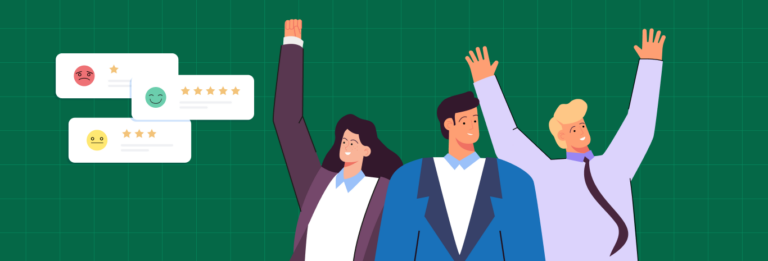We, at LeenaAI, hosted a 50-minute long webinar on Wednesday, December 16th, and our topic was Employee Engagement & Employee Wellbeing: Exploring the Correlation. Our panel was made up of three senior HR leaders from different industries: Annaline Joubert, Principal HR Generalist, AlJazeera; Ramakrishna Vaymajala, CHRO, Home First Finance Company; and Tanushree Ray, CHRO, Shadowfax.
For all of you who couldn’t attend the webinar but would like to watch it, our recording is now available for viewing here. Don’t have time to watch a full webinar? We’ve got you covered. Read on to know the key takeaways from a very insightful discussion.

What does the new-age approach to employee engagement look like?
If your 2020 action plan for employee engagement is based on surveys done in 2019, it is bound to fail. The approach to engagement at present is dramatically different from the approach one took before the pandemic. The approach now is more individual-based as opposed to the earlier approach that was more group or department-centric.
In the present scenario, HR needs to have a detailed understanding of an employee’s personal situation and position. Benefits extended to employees have to be customized accordingly, and blanket benefits do not cut the chase anymore. The pandemic and remote working have brought in different challenges for different people. Hence, asking employees what they need instead of basing things on one’s own experience could help HR segregate employees into small groups and extend benefits that suit each group’s needs.
What unique employee engagement and wellbeing challenges does every industry bring in, and how can HR navigate them?
The media industry is highly demanding, fast-paced, constantly under pressure, and extremely competitive. Everyone is chasing crazy deadlines and wants to be the first one to break a headline, and this leads to a situation where the working environment can easily become hostile and toxic. It is essential for HR to prepare candidates for what the job entails and hire only those who know what they’re signing up for. For employees, HR must have a compensation offer that takes into consideration that employees are often deployed in war-zones and put their lives on the line to cover stories. Counseling services, gym opportunities, and on-demand doctors are some of the facilities that must be made available to media workers.
In the affordable housing sector, the major challenges revolve around the kind of customers one deals with. Clients are often looking to buy their very first home and put their whole life’s savings into it. In such scenarios, it can be very difficult for employees to strike a balance between empathy and ensuring profits for the business. Also, such housing is often located in the city outskirts and that automatically translates to the need to cover difficult terrain on bikes. Both the emotional and mental health of employees is often at risk in this sector. HR can help by showing employees the larger purpose they’re working towards. Putting it out there that these employees are helping people go from a shanty to a one-bedroom apartment they can call their own, can be a major source of motivation for employees.
Logistics and supply-chain counts on employees that are on the ground and out there managing delivery hubs. In a pandemic scenario, keeping them safe can often be a challenge. HR must make infrastructural changes, and ensure social distancing, thorough sanitization, and regular Covid checks for all locations. They must also ensure information regarding the disease is made readily available and any panic scenario is handled seamlessly.
In 2021, how do we remove the stigma attached to mental health and build a workplace that is more accepting of those with mental health issues?
We’ve got a three-fold approach for you here:
HR must build campaigns around mental health issues and ensure they get the conversation started. It is essential to ensure that those with mental illnesses feel like they can talk about it without the fear of being judged. It might also be helpful to have a written policy in place that protects those with mental health issues against discrimination of any kind.
Employees and managers also have to be trained to look for signs of dwindling mental health within teams or among peers. Someone who has suddenly withdrawn from all communication channels, shows a remarkable drop in performance, or is visibly less careful about their personal hygiene and attire, might be screaming for help without really saying much. When everyone within the organization is trained to look for such signs, it can become easier for HR to be alerted about such employees before things go beyond repair.
Thirdly, it is essential for HR to provide employees with opportunities for help. On-demand counselor services available on all channels, and including mental health coverage within insurance policies, are some of the ways in which HR can ensure employees get the help they need. Allowing time-off for reasons revolving around mental health can also help remove the stigma and make the workplace more considerate of those with mental health issues.
There’s a lot more that our speakers shared insights on, and we urge you to please check out our recording. We assure you it’ll be worth your while.







2 Comments